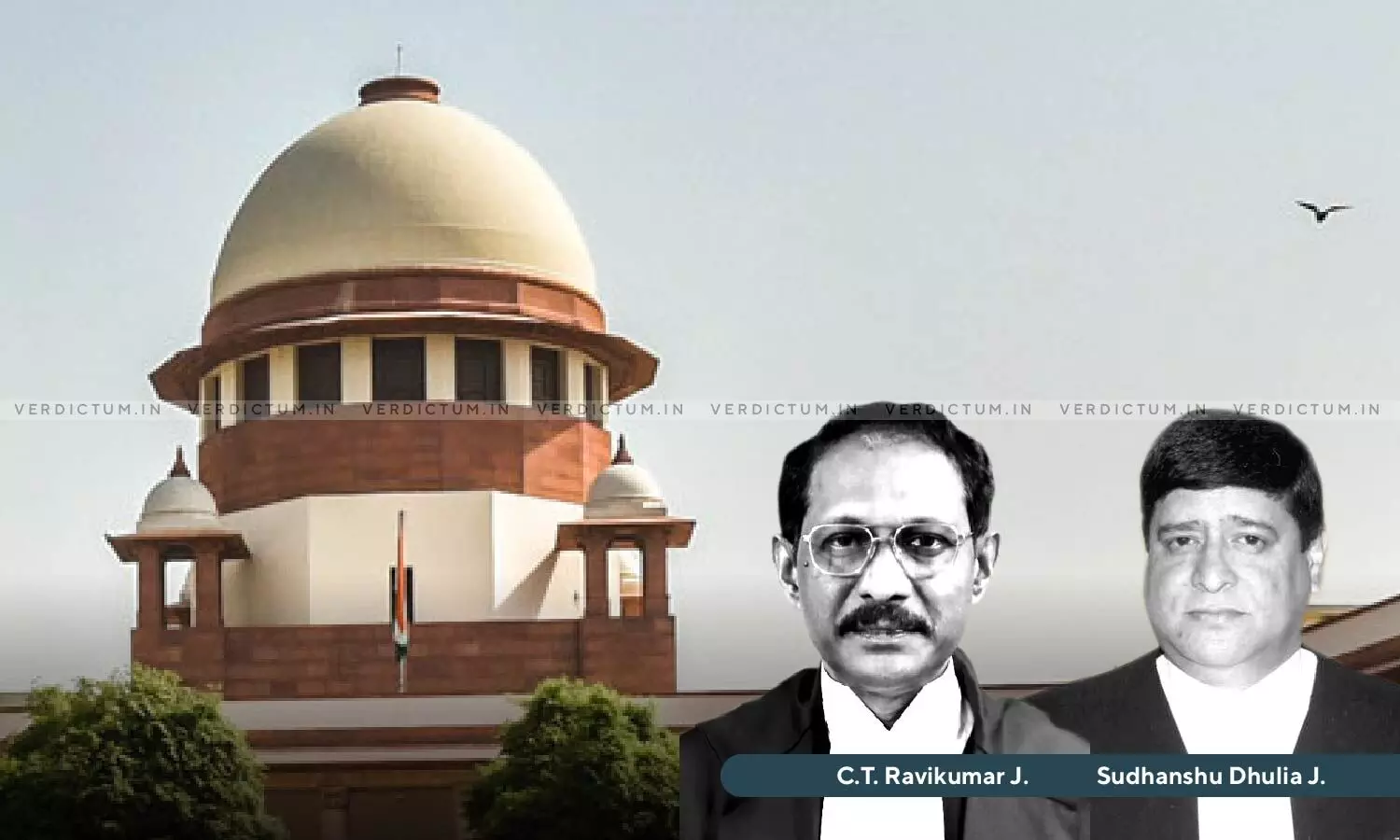
Overwhelming Evidence Proves That Land Was Indeed 'Agricultural': SC Dismisses Daughters’ Claim Seeking Share In Ancestral Property
 |
|The Supreme Court dismissed the Appeal filed by the daughters of the deceased seeking a share in the ancestral property. They challenged the impugned order of the Kerala High Court which had dismissed their claim.
The Court held that while it is possible for land labeled as a “garden” not to be used for farming, the overwhelming evidence supports the conclusion that disputed land is indeed agricultural. Therefore, the daughters cannot claim any right over the property. The Court further reiterated that Appellants should have demonstrated exceptional circumstances or grave injustice to reverse the impugned order and judgment.
The Bench comprising Justice C.T. Ravikumar and Justice Sudhanshu Dhulia observed, “The land in question undoubtedly has coconut trees on it, most of them are very old but fruit bearing, and moreover in revenue records, the land is described as “theaattam” i.e., “garden”. This would mean that the land in question may be put for agricultural use. Theoretically, it is possible that a land which is recorded as “theaattam” may not be actually put for agricultural use. All the same, in the present case, the overwhelming evidence which has been duly appreciated by the three Courts below clearly prove that the land was indeed an agricultural land. We therefore find no reason to take a different view at this stage”.
Senior Advocate P.N. Raveendran appeared for the Appellants/Plaintiff and Senior Advocate V. Chitambaresh Appeared for the Respondents/Defendants.
The Appellants (daughters of the deceased) filed a civil suit for partition of the property, which had a total area of 75 ½ cents and included the ancestral residential house of the parties. The succession to the property had already opened in 1942, before the amendment of the Hindu Women’s Right to Property Act, 1937. The property originally belonged to Sami Vaidyar (deceased) and passed on to his male successor son, Sukumaran (Respondents). The parties involved belong to the “Thiyya” community in Kozhikode, Kerala, governed by Hindu Mitakshara law. It is acknowledged that under this law, ancestral property is only passed down to male children within the Thiyya community in Kozhikode. Daughters are entitled to receive maintenance until the time of their marriage. The Trial Court dismissed the Appellants’ suit because the disputed land was agricultural land on which the Appellants could not claim any rights. This decision was upheld by the First Appellate Court and, in the second appeal, by the High Court. Aggrieved by the impugned order, the Appellants filed before the Apex Court.
The Court noted that the disputed land contains old coconut trees that bear fruit. The disputed land was officially designated as a “garden” in revenue records, indicating its potential for agricultural use. The Court asserted that the case was filed before the Supreme Court, although the Appellants must demonstrate exceptional circumstances or grave injustice to reverse the impugned order and judgment. No such circumstances have been presented, and the fact that the Respondents have been in possession of the land without challenge from the Appellants further weakens their case, the Court observed.
“We must state here that this case is here before us in a Special Leave Petition filed under Article 136 of the Constitution of India. It is true that leave has been granted in this case. Nevertheless, the settled legal position remains that even after leave is granted and appeal is admitted, the appellants must show that exceptional and special circumstances exist to reverse the findings, or grave injustice will be done if the decision under challenge is not interfered with. We do not find any special circumstances here which may warrant our interference”, the Bench noted.
Accordingly, the Court dismissed the Appeal.
Cause Title: M. Sivadasan (Dead) Through Lrs. & Ors v A. Soudamini (Dead) Through Lrs. & Ors (2023 INSC 774)